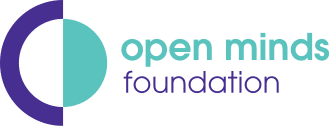Educating Young Minds
Teaching young people to think critically, fighting misinformation and coercive control Support our cause +
Educating Our Young People
Misinformation and coercive control hamper our everyday lives, enabling everything from political and religious radicalisation, to domestic abuse, fake news to gas lighting. Young people are most susceptible to coercive control, but we can fight it by teaching them to think critically.
Critical thinking teaches us to question what we are told, challenge our own thoughts and feelings, and detect claims, promises and ‘facts’ that simply aren’t true. Encouraging critical thinking in young people is the simplest, most effective way to redress many modern-day challenges, and create a long-term reduction in coercive control.
What is the Open Minds Foundation doing?
Working with leading educators in the UK and US, we have three core activities that we are undertaking:
Benchmarking:
Establishing where and how critical thinking skills are already taught within the UK & US curricula, as well as topics that can potentially align with teaching critical thinking skills and developing an understanding of coercive control. For example, in the UK curriculum, students already study the use of Propaganda during the Second World War, and the materials can be easily extended to incorporate critical thinking skills. This information will be used to determine the breadth and scope of our resources, as well as straightforward ways to incorporate it into existing education.
Resource development:
Simplifying the process of teaching these skills, we are developing a series of free resources for educators, parents, and groups to use, to teach critical thinking skills. Our first set of resources will focus primarily on developing critical thinking skills in 12-18-year olds, with additional resources being created to introduce the concept at primary age (5-12).
Subsequently, we will create additional subject-matter resources that support teachers in exploring the concept of critical thinking within their wider education parameters, and which will also identify methods and applications of coercive control, such as radicalisation, gang membership, and domestic abuse. These will make the teaching of critical thinking simple within existing curriculum frameworks and lesson plans.
Student awards:
In order to successfully achieve our long-term goals, it is essential that young people learn to apply critical thinking consistently, and to practice it regularly. A single lesson or a single resource is not enough to change society for the better. We are therefore developing a series of self-reflective awards which encourage young people to work towards set goals, and regularly apply and improve their critical thinking skills. These awards will deliver school-level recognition, enabling each education establishment to take ownership of its students’ progress.
DONATE NOW
See how your donations help support those most at risk
Our experts
To maximise the relevance of our resources, we are working with leading education experts who already work within schools and alongside teachers. These are:
John Snell
John is a forward-thinking school leader, working in UK education. As well as an Executive Head Teacher role with a Schools Partnership, and a Local Headteacher role at a Primary School, John is a sought-after expert for education exhibitions and conferences and a progressive implementor of educational change. As well as providing insight to UK schooling and the curriculum, John is also supporting us to trial educational resources, and helping establish an appropriate framework for our student awards. His expertise is particularly focussed on primary school education, and introducing the initial tenets of critical thinking in children aged 5+.
Register your Interest
If you have a role in education, teaching, or leadership of young people and would like to support us with testing and developing our resources, please register your interest. First resources will be available in 2022 and we are looking for school-age groups to work with to measure the impact on critical thinking skills.
